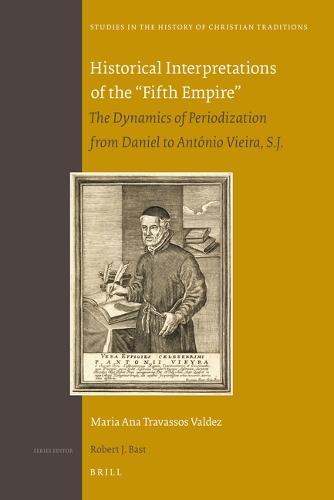Overview
How may a 17th century theory about the Fifth Empire and the succession of empires be so similar to the 2nd century BCE theory introduced by the Book of Daniel? How was this possible in the works of António Vieira, S.J., (1608-1697), and particularly in his famous manuscript, the Clavis Prophetarum - De Regno Christi In Terris Consummato? This book analyzes the history of the interpretation of concepts such as Fifth Empire and succession of ages from as early as the 2nd century B.C. until the 17th century. Influenced by the main intellectual and religious tendencies of the 17th century, Vieira’s interpretation has revealed itself to be original in the way that it introduces a new reading/interpretation of the succession of historical periods. The Jesuit also identifies the antichrist and the Last Emperor with historical characters of his time.
Full Product Details
Author: Ana Valdez
Publisher: Brill
Imprint: Brill
Volume: 149
Weight: 0.736kg
ISBN: 9789004191921
ISBN 10: 9004191925
Pages: 348
Publication Date: 19 November 2010
Audience:
General/trade
,
General
Format: Hardback
Publisher's Status: Active
Availability: Available To Order

We have confirmation that this item is in stock with the supplier. It will be ordered in for you and dispatched immediately.
Reviews
Antonio Vieira (1608-1697) is one of the most fascinating Portuguese Jesuits of the seventeenth century. [...] The book provides an important contribution in understanding early-modern Iberian eschatological streams and a fascinating excursus through the different interpretations of eschatological expectations from the second century BC to the seventeenth century. Emanuele Colombo, DePaul University. In: Religious Studies Review, Vol. 38, No. 1 (March 2012). Valdez has rendered an important service to the scholarly community interested in history of biblical interpretation concerning apocalyptic texts. This work brings our attention to another example of the excitement in Europe around the year 1666 and its aftermath. The complex personality of Father Vieira, theologian and missionary, is presented by Valdez so that his speculations on Portuguese history become available in flawless English. May she continue to explore these little-known veins if Christian thought! Lawrence E. Frizzell, Seton Hall University. In: Sixteenth Century Journal, Vol. 43, No. 3 (2012), pp. 955-956.
Antonio Vieira (1608-1697) is one of the most fascinating Portuguese Jesuits of the seventeenth century. [...] The book provides an important contribution in understanding early-modern Iberian eschatological streams and a fascinating excursus through the different interpretations of eschatological expectations from the second century BC to the seventeenth century. Emanuele Colombo, DePaul University. In: Religious Studies Review, Vol. 38, No. 1 (March 2012). Valdez has rendered an important service to the scholarly community interested in history of biblical interpretation concerning apocalyptic texts. This work brings our attention to another example of the excitement in Europe around the year 1666 and its aftermath. The complex personality of Father Vieira, theologian and missionary, is presented by Valdez so that his speculations on Portuguese history become available in flawless English. May she continue to explore these little-known veins if Christian thought! Lawrence E. Frizzell, Seton Hall University. In: Sixteenth Century Journal, Vol. 43, No. 3 (2012), pp. 955-956.
Author Information
Ana Valdez, Ph.D. (2008) in History, University of Lisbon, Portugal, is a Postdoctoral Fellow at Yale University. She has published widely on António Vieira and on religious tolerance between Portuguese Jesuits and Sephardic Jews in the late 17th century.



